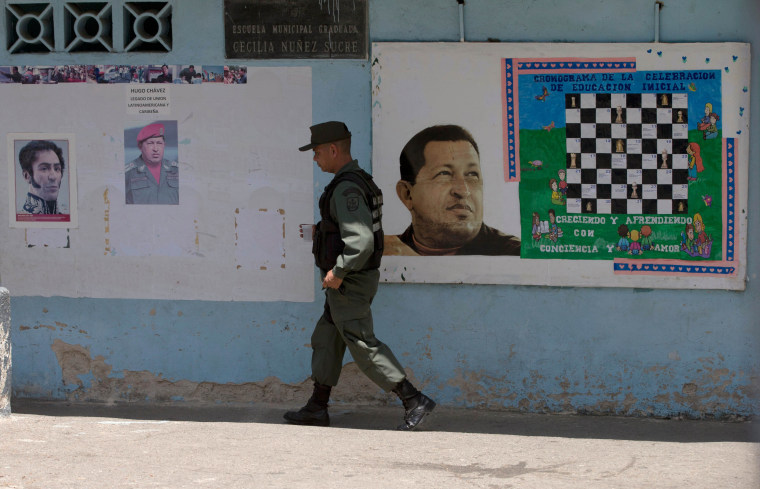Voters in Latin America seem to be turning away from the leftist Latin American governments that were ushered into power as a protest against the 1990s free-market, pro-Washington policies.
In several countries, street protests are rising and polls show dissatisfaction as corruption scandals and stagnant growth threaten the popularity of several current governments.
"It's not easy to govern in Latin America right now," said Raul L. Madrid, co-editor of a 2010 book on leftist governments in the region. "Many of these governments rode frustration with high levels of inequality and corruption to power. But you can't rail against the establishment as effectively as you once did when you are the establishment at this point."
The biggest protests are against Venezuelan socialist president Nicolás Maduro, who has the lowest approval ratings in the 16 years since socialists came into power under Hugo Chávez. As oil prices plunge Venezuela has the world's fastest inflation and severe shortages of goods.
Cuba, Venezuela's biggest ally, is now negotiating with the U.S. about normalizing relations.
In Chile, President Michele Bachelet's popularity has plunged from 84 percent in 2010 to around 30 percent after a scandal over her son using his political influence to secure a loan.
Perhaps sensing the troubles of his closest ally, Cuban President Raul Castro in December agreed to talks with the U.S. aimed at normalizing relations, a move expected to fuel growth in the communist-run economy. Currently, Venezuela provides Cuba with the bulk of the oil it consumes at subsidized prices.
A string of headline-grabbing corruption scandals are also exposing the ethical breaches that befall many parties after more than a decade in power.
"When the economy is growing nobody pays attention to corruption," said Patricio Navia, a political scientist who teaches at New York University and Chile's Diego Portales University. "But when the pie stops growing, and voters see others profiting, they start to ask `where's my piece?'"
The first major test of a shift in voters will take place in Argentina in October, as the government defends itself over 30 percent inflation, debt and the scandal over the death of prosecutor Alberto Nisman.
It is not just leftist governments who are working hard to keep voter support - Colombia's Juan Manuel Santos faces low approval ratings over the slow pace of peace talks with rebels and Mexico's Enrique Peña Nieto has been strongly criticized over corruption and hte disappearance of 43 students.
But the growing frustration with leftist governments may prompt several leaders to moderate their policies and pivot toward the center.
Brazil's Dilma Rousseff is rolling out a more conservative message of austerity and is trying to tackle allegations of corruption in the state-owned oil company.
Navia says moderate governments that are more flexible will have an easier time attracting foreign investment and boosting savings. Still, it may be premature to write off the leftist governments, whose leaders have made more of a connection with voters than their right-wing opponents, says Madrid.
Mario Toer, a professor of Latin American studies at the University of Buenos Aires, says many of the scandals are being hyped by opposition-leaning media. Corruption has actually been on the decline in the past decade, though he recognizes the left is at a crossroads.
--Joshua Goodman, The Associated Press
